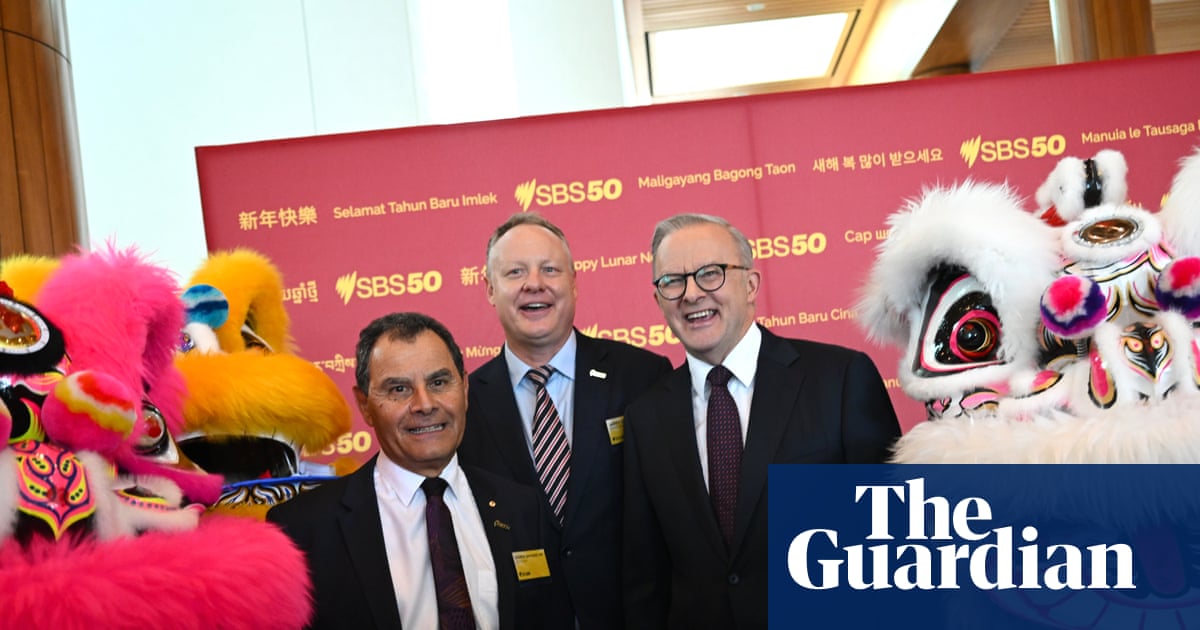The former SBS chair George Savvides has challenged commercial broadcasters to let viewers block gambling ads in the absence of tougher regulation, citing a need to protect people from “an addictive and destructive product”.
Savvides, who retired from SBS in July, has also called on the Albanese government to adopt the wide-ranging recommendations of a parliamentary inquiry into online wagering, including a total ban on gambling ads after a transition period.
SBS became the first television broadcaster in the world to trial an opt-out of gambling feature on its digital streaming service in 2024. Earlier this month, the broadcaster announced the change would be made permanent from 2026.
“In my mind, there is absolutely no reason commercial broadcasters should not follow suit,” Savvides said.
“I cannot imagine the level of dissatisfaction that viewers of other Australian TV networks endure as they have to sit through a significantly larger TV advertising load per hour filled with gambling ads surrounding live sport coverage.”
Savvides said the trial, which allowed On Demand account holders to submit an online form to opt-out of gambling, alcohol or fast food ads, led to a 45% reduction in complaints. He argued advertisers supported the change, as they did not want to annoy people unwilling to hear their message.
Sign up: AU Breaking News email
The Albanese government has taken more than two years to formally respond to the inquiry’s recommendations and has faced sustained lobbying from sporting codes and commercial broadcasters opposed to the proposed ban.
The peak body for Australia’s free-to-air commercial broadcasters told the inquiry the extent of gambling ads on television had been grossly exaggerated by some critics and that further restrictions would make “the provisions of sports for free” increasingly difficult.
But Savvides, along with public health experts, believes the prevalence of gambling ads has caused community harm. A March report by Equity Economics found Australians now lose more to gambling each year than the $28.3bn the government spends on aged care.
The Alliance for Gambling Reform has also called on other broadcasters to copy SBS’s opt-out model of advertising on streaming services.
“No one is seeking to ban gambling but there is too much gambling advertising – too much of it is reaching our kids – and we can act to protect people,” said the alliance’s chief advocate, Tim Costello.
SBS has previously attracted criticism for broadcasting gambling ads in close proximity to sporting coverage.
In early 2023, the broadcaster’s director of corporate affairs, Clare O’Neil, apologised for airing gambling advertisements during Fifa World Cup coverage in breach of advertising rules, blaming human error.
“We proactively went back and investigated games that we thought may been subject to the same error and found a couple of other ones that had occurred, which obviously we reported to the regulator,” O’Neil told the inquiry.
Last month, the Australian cricketer Usman Khawaja said the Albanese government had been “100% too slow” to ban gambling ads and must sever the link between the wagering and sport to protect children.
“I can’t watch an NRL game without getting odds right before a game,” Khawaja said shortly before a meeting with the prime minister in Canberra.
The government had planned to introduce legislation before the federal election in May but reforms were shelved amid fierce opposition from broadcasters, sporting codes and some bookmakers.
The communications minister, Anika Wells, has restarted negotiations with industry and several gambling sources have told Guardian Australia they expect to see legislation by the end of the year.
In Australia, Gambling Help Online is available on 1800 858 858. The National Debt Helpline is at 1800 007 007. In the UK, support for problem gambling can be found via the NHS National Problem Gambling Clinic on 020 7381 7722, or GamCare on 0808 8020 133. In the US, call the National Council on Problem Gambling at 800-GAMBLER or text 800GAM.

